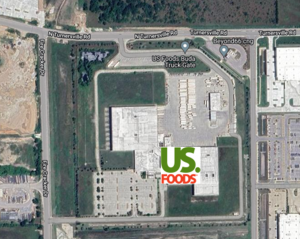By Andy Sevilla
Much to the dismay of a standing-room only city hall, Buda council members approved the execution of a water supply contract that would bring one million gallons of water per day for city use from the Trinity Aquifer in western Hays County.
The private water supplier who is looking to extract water from the Cow Creek Formation of the Middle Trinity Aquifer also has agreements with the Goforth Special Utility District and the developer of a future high-end 2,200 home development in Mountain City’s extraterritorial jurisdiction for three and 1.3 million gallons of water per day, respectively.
Many area residents and officials in attendance at Tuesday night’s Buda council meeting implored the elected officials to delay action on the water supply contract and allow for the dissemination and review of data surrounding the massive water pumping project in western Hays County.
Concerns of domestic Trinity Aquifer wells going dry due to Electro Purification’s (the Houston-based private water supplier) proposed well field have run rampant throughout Hays County in recent weeks.
“We do have an obligation to not take water from our neighbors who are relying on that for life,” Buda business owner and resident Eileen Conley told council.
Representing the Barton Springs Edwards Aquifer Conservation District (BSEACD), board member Mary Stone asked the council to delay a decision on the contract due to limited data available and a request to get one of their geoscientists to look at Electro Purification’s test wells and explore the potential impacts to neighboring wells and the aquifer as a whole.
“Currently we have no site-specific data of this area, and we are concerned of the potential impact of people that live around that well site, as well as some of the area within the Trinity [Aquifer],” Stone said.
But despite pleas from several Hays County residents, the BSEACD, and Hays County Commissioner Will Conley, the council voted 6-1 to move forward with the execution of a water supply contract. Buda’s agreement, however, unlike those with Goforth and Clark Wilson, the developer of the proposed Anthem subdivision just outside Mountain City, will have a mitigation clause in place that could put Electro Purification on the hook to repair or alleviate affected surrounding wells.
Still, the council’s vote was met with gasps, shock and nods of disapproval from those in attendance.
“I see some head shaking out there (in the audience), however there are two agreements already in place that do not have that mitigation plan as ours does,” Buda Mayor Todd Ruge said after the vote. “We have actually provided extra protection for those folks out there as part of the agreement, and that seemed to be the first question that came up tonight.”
Hays Trinity Groundwater Conservation District (HTGCD) President Linda Kaye Rogers whom also asked the council to delay a vote on the contract said she was disappointed with the council’s decision.
“I am in tears,” she said. “I can’t believe that they would do this — that they would defy the county commissioners’ request, all the request of the people that came in tonight — and that they would go forward with inadequate and incomplete information. They do not have all the information they need to make this decision.”
Council member Angela Kennedy, who casted the lone dissenting vote for the water contract, said the residents who expressed worry had legitimate concerns of domestic wells potentially running dry.
“The hydrogeologist that we hired pretty much established that this project is going to have negative impacts on the surrounding residential/domestic wells,” Kennedy told the Hays Free Press, adding that Buda has other opportunities for water supply and she plainly disagreed with contracting with an organization that could negatively affect their neighbors and potentially affect sensitive environmental features like Jacobs Well in Wimberley.
Bob Harden, a hydrologist the city hired to review Electro Purification’s plan, told council that about 30 wells within four miles of the water supplier’s well field may see a decline of artesian pressure of approximately 200-300 feet or more.
Harden said water levels in the wells may fall below where the pumps are set in nearby domestic wells. However, he said that could easily be alleviated by lowering the pumps.
BSEACD General Manager John Dupnik said that in his estimation it is quite likely that more wells could be affected than those described by Harden, though he didn’t have an exact number.
“It’s disappointing, our board formally requested some time to conduct a technical analysis of the data that we just received on Friday [Jan. 16],” Dupnik said. “So we haven’t had the opportunity to do that, we’re going to continue to do that, but I’m not sure what effect it will have, these contracts are binding. The consequences are still unknown to us.”
But the unknowns go beyond the potential impacts to surrounding domestic and commercial wells.
“We haven’t proved up this thing yet, unless this thing proves up and we know we can take care of the city’s needs, the contract won’t go through,” Electro Purification principal Bart Fletcher told the Hays Free Press.
Buda’s contract has an option period where Electro Purification has nine months to prove its well field can produce 5.65 million gallons of water per day (MGD), which accounts for Buda’s 1MGD, plus a 25 percent contingency, and Goforth’s and Wilson’s agreed amounts. If the company cannot provide the water quantity, then the city has an out of the contract.
Per Buda’s agreement, the city will pay $131,400 per year in reservation costs and the company will have 18 months to construct the infrastructure necessary to pipe the water east.
Once the water is able to be delivered, Buda will pay a total of $658,825 in the first of the 30-year contract — $593,125 for take or pay of 0.50MGD and $65,700 for a reservation fee for the remaining 0.50MGD set aside for the city.
The first year’s delivery will amount to only half-a-million gallons per day, while that amount will rise to the full one million over five years, the agreement states.
Ruge said the city has spent about $80,000 hiring attorneys, hydrologists and engineers to study the project.
“We are doing our homework on this,” Ruge said. “When we enter into any kind of contract, we don’t take things like this lightly.”







